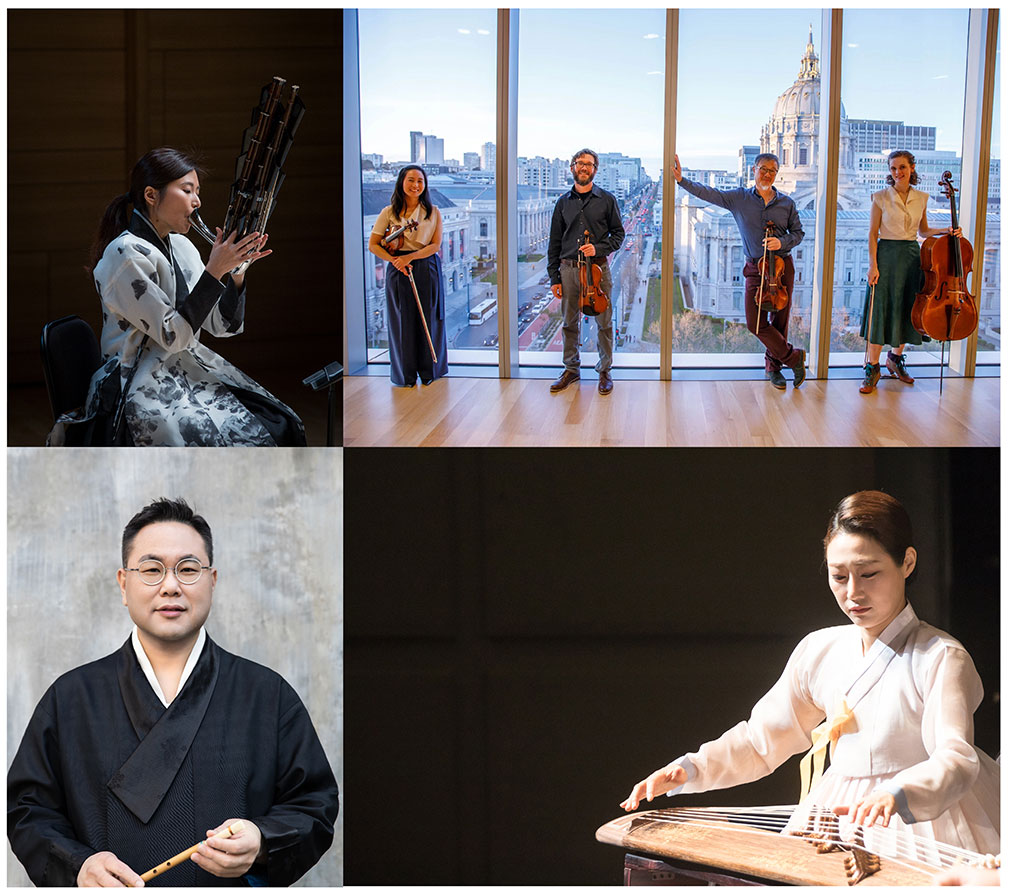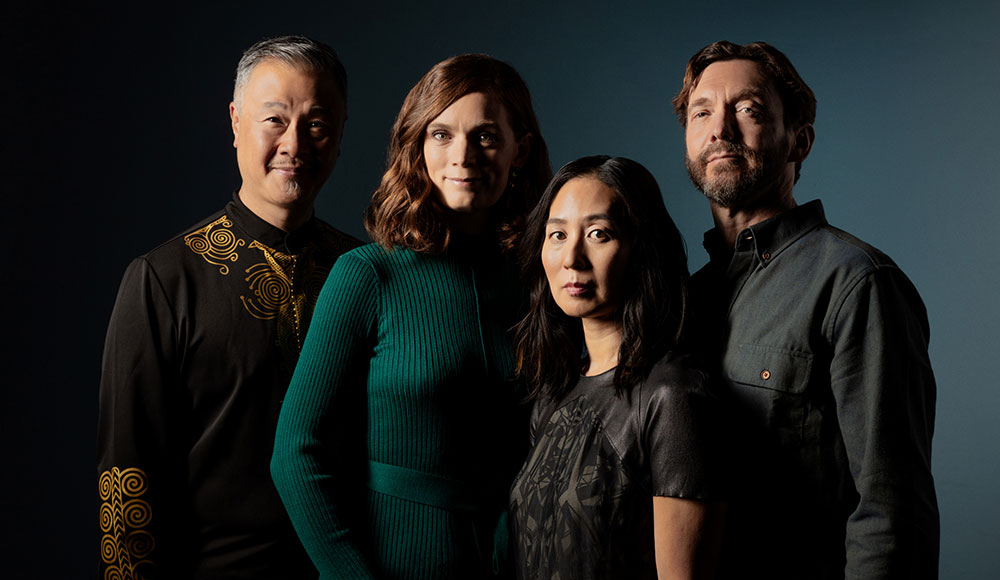It’s a momentous coming together of cultures, two years in the making, as the Korean Experimental Music Festival arrives at UCSC for four free performances Nov. 14-15. This is a rare opportunity to experience instruments whose origins span thousands of years, paired with what’s possible in cutting-edge music technology.
The idea was originally conceived by Hi Kyung Kim, a professor in the music department at UCSC, who saw it as an extension of her Pacific Rim Festival, which started in 1996. That festival brought together traditional Korean music performers with composers from California for opportunities of intercultural musical dialogue.
It’s a collaboration that has had a long process, not only due to the physical and cultural difference between the musicians, but also by the learning curve needed to understand each other’s instruments.
“It’s a first-of-its-kind ensemble pairing two gayageums—Korea’s zither-like string instrument—with a Western string quartet,” says Assistant Professor Matthew Schumaker of the Department of Music at UCSC.
“I’m involved largely in music with electronic music, live performers and technology,” Schumaker says. This event also integrates some of Schumaker’s colleagues at UC Berkeley and Stanford University who are also engaged in music technology pursuits.
Such an ambitious event is bound to make even the most tenured professor nervous. “I’m more excited than nervous because I just feel like we have this opportunity to work with these tremendous musicians from the National Gugak Center in Seoul, Korea. The National Gugak Center is like the New York Philharmonic of traditional Korean music. And so to have the opportunity to work with those tremendous musicians is just something that, I think, faculty and all of the composers who are involved feel so grateful.” Among the participants is the Del Sol String Quartet, which Schumaker calls “one of the most famous Bay Area string quartets.”

Over the course of the four concerts, 19 new works of music will debut. With composers from the UCSC faculty and graduate students from Santa Cruz, UC Berkeley and Stanford, it’s a melting pot of collaboration.
One composer is Nina Barzegar, an Iranian-born DMA candidate in Music Composition at UCSC. A composer, pianist, improvisor and actor, Barzegar eagerly awaits the show. “The approach of the music department at UCSC is kind of focusing on world music, and getting familiar with other traditions and their instruments,” Barzegar says.
For many attendees it will be the first time they will get to see, and hear, traditional Korean instruments like the piri, a bamboo double-reed oboe, and the gayageum, a plucked instrument that has 12 to 25 strings.
“It’s been really wonderful to get familiar with these instruments and to know about the register, the quality of the sound, and about the notation symbols that they use in their music,” Barzegar says.
“It’s been a little challenging to get to know Korean music because it comes from a deep historical tradition and it’s not easy to learn the core aesthetics of their music. But we had the chance to learn about the instruments, and to know how to work with their instruments, and write our own music with this instrument. And this has been a great experience because we are experimenting with our own music using new timbres, which I think is rare,” Barzegar explains.
“For example, this concert is divided into two groups. Some write music with Korean instruments and electronics, and some for string quartet and gayageum,” she continues. “And this is not a kind of repertoire that you can find anywhere. So it’s a great opportunity for all of us to listen to this music from different musicians with different backgrounds.”
Schumaker’s specialty is in the electronics that will accompany the traditional instruments. “I think each performance will be unique. I know on the electronic side of things, in my composition, there are lots of different algorithms that are generating music on the fly. And so there’s a certain amount of variation that happens every single time the piece is performed as a result. But then of course you have the wonderful performers’ nuanced performances and they’re bringing different nuances to their performance every time they revisit a work in a performance. I think each experience is really individual and kind of special,” Schumaker explains.
Korean Experimental Music Festival shows take place at 5 and 8pm on Nov. 14-15. Free. UCSC Music Center Recital Hall, 402 McHenry Rd, Santa Cruz. events.ucsc.edu











